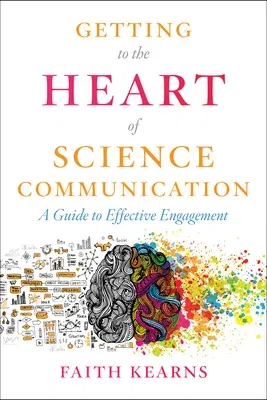At a community fire day in a northern California town several years ago,
author Faith Kearns gave a talk on building fire-safe houses able to
withstand increasingly common wildfires. Much to her surprise, Kearns
was confronted by an audience member whose house had recently burned.
What she thought was straightforward, helpful scientific information had
instead retraumatized audience members, forcing Kearns to reevaluate her
approach. Like Kearns, scientists today working on controversial issues
from climate change to drought to COVID-19 are finding themselves more
often in the middle of deeply traumatizing or polarized conflicts. It is
no longer enough for scientists to communicate a scientific topic
clearly. They must not only be experts in their fields of study, but
also experts in navigating the thoughts, feelings, and opinions of
members of the public they engage with, and with each other. And the
conversations are growing more fraught.
In Getting to the Heart of Science Communication, Faith Kearns has
penned a succinct guide for navigating the human relationships critical
to the success of practice-based science. Using interviews and personal
anecdotes, as well as her own insights as a field scientist, Kearns
walks readers through the evolution of science communication and how
emotional and high-stakes issues have shaped communication. The meat of
the book lies in the middle chapters, where Kearns offers key tools for
communicators: listening, working with conflict, and understanding
trauma, loss, and healing. She concludes the book with a substantive
discussion on diversity, equity, and inclusion in science communication,
and advice to readers for handling their own emotional needs in an
unpredictable career landscape.
This meticulously researched volume takes science communication to the
next level, helping scientists see the value of listening as well as
talking, understanding power dynamics in relationships, and addressing
the roles of trauma, loss, grief, and healing. This book will
particularly resonate with early to mid-career scientists, graduate
students, and researchers, especially those in applied sciences who work
closely with the public.

